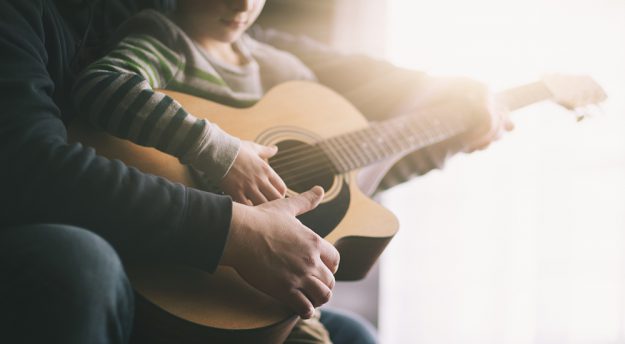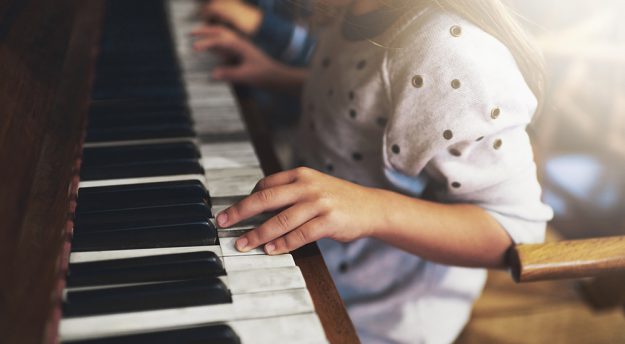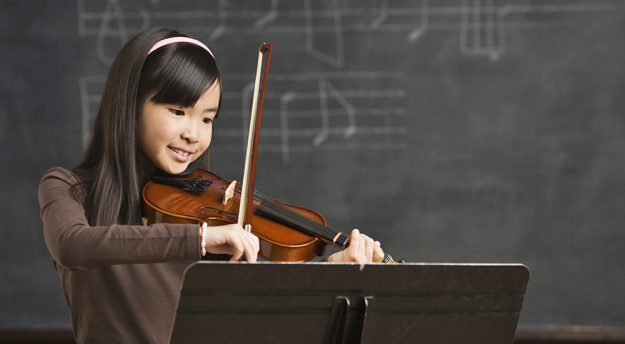Starting Young: Can music really make your kids smarter?
mis à jour le 9 November 2016 à 00:00Letting your little ones pick up music from a young age could be more beneficial than you think.

There's little doubt that learning an instrument has a large number of benefits. Discipline, better focus, a great talent to show off, even increased career possibilities! But did you know that picking up an instrument from a young age can actually change the way you think?
Neurophysiological distinction
There's a reason that your muso friends are always complaining that "all music sounds the same nowadays"! Many studies confirm that learning an instrument and studying music from a young age can literally rewire the structure of your brain, making it overwhelmingly better at recognising and processing sounds and patterns that we otherwise wouldn't hear. While this neurophysiological distinction in sound processing obviously helps with playing an instrument, it also improves general cognitive and neural processing, resulting in higher levels of literacy and reasoning. So as crazy as it sounds, music can rewire your brain to actually achieve better grades.
Researchers have actually seen this in practice. The Harmony Project, a community music program that supports low-income children in Los Angeles, found that 93% of their students went on to pursue higher education, despite a dropout rate of 50% in the same neighbourhoods.

How to get the most out of music
Unfortunately, it's not just about showing up to music lessons once a week and getting smarter. After seeing the interesting statistics from the Harmony Project, Northwestern University's Auditory Neuroscience Laboratory decided to further study the effects of music on the mind. They found that the main factors in the cognitive benefits are the levels of engagement, attendance, and participation. Those actively engaged in studying and playing music showed marked neurological improvements over those that simply listened to music. Essentially, it's the making of the music that matters, rather than just the listening, or as Nina Kraus, the director of the laboratory, puts it: "you’re not going to become physically fit just by watching sports."
As to how to keep kids interested in their lessons, that's all up to you. It's important to cultivate a positive environment around your child's engagement with music. Rather than forcing them to take lessons which they do not enjoy, allow them to take things at their own pace, pick their own instruments, and enjoy it. It's also important to find a great teacher. Instead of focusing on qualifications and rigorous lesson plans, find a teacher that is able to engage your child, and help them develop a love for making music.

When should they start music lessons?
So what is the right age to introduce your kids to music lessons? Many argue that the younger they are the better. Much like kids who are exposed to a second language from a young age often become more fluent than those who start later, kids who start playing an instrument from a young age are known to progress faster and further. In fact, a joint study by Concordia University and the Montreal Neurological Institute discovered that brain scans of musicians who started before 7 years of age show stronger connections between motor regions - the areas of your brain that handle fine movement and hand-eye coordination - than those who started later on in life. This was despite the two groups having similar training and experience levels!
While the evidence towards starting young is certainly positive, it's also important to strike a perfect balance. Starting at such a young age has the potential to create a negative effect, which can manifest in a physical phenomenon scientists call 'toxic stress'. If your child is so young as to not enjoy the instrument, they can be conditioned to associate the lessons with negativity, increasing the production of the stress hormone cortisol.
So the key, it seems, is to not focus on age but rather to find a program that your child enjoys. All of the benefits gained from the lessons are highly dependent on positive association, so ensuring that your child is enjoying themselves is the number one goal!
So as Christmas nears and you start to rack your brain for the perfect present for your kids, perhaps a guitar, piano, or cello is the perfect choice!
Angela Goh
Photos: Getty Images
Read more:
Online Safety: 9 Tips for monitoring your child’s social media habits
Spotting Lies: 10 Signs your child might not be telling the truth
Could drinking too much green tea affect your ability to have kids?



